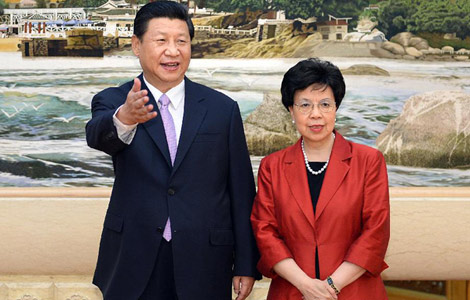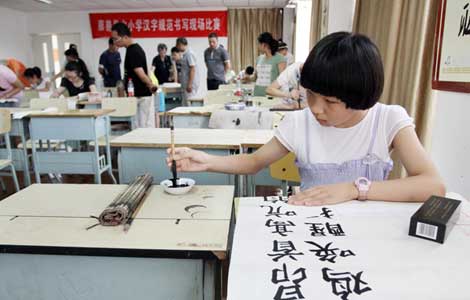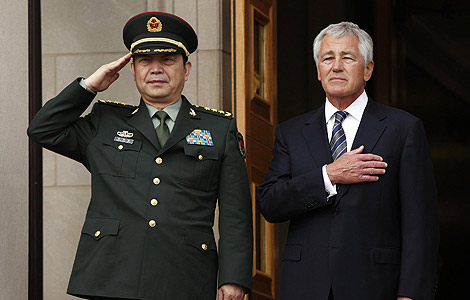China to crack down on illegal online drugs
Updated: 2013-08-21 07:34
By Wang Qingyun (China Daily)
|
||||||||
Search engines, e-commerce firms asked to help root out fake vendors
The China Food and Drug Administration and four other State-level departments plan to crack down on illegal online drugstores and similar channels in a move to regulate online medicine sales.
It said on Tuesday it will cooperate with the State Internet Information Office, the Ministry of Industry and Information Technology, the Ministry of Public Security, and the State Administration for Industry and Commerce to root out illegal online sales of medicine, especially fake drugs.
The most common fake cures are claimed to treat diseases such as cancer, diabetes, coronary heart disease, hypertension and sexual dysfunction, so those kinds of medicine will get special attention, according to the administration.
The food and drug administration asked search engines and e-commerce companies to detect such violations, compile a list of those responsible and report them to medical supervision authorities.
The administration's complaints center and the China Internet Illegal Information Reporting Center will also take consumer complaints about illegal online drug sales. People can dial 12331 or 12377 to report such complaints.
Internet management authorities will locate the vendors concerned and tell local governments to investigate their businesses.
Search engines and e-commerce companies should also rearrange the order in which search results are displayed by putting qualified online drug stores up top, and blocking or eliminating links to websites suspected of illegally selling medicines.
The administration has approved the operation of 95 online drugstores, which hold Certificates of Online Medicine Trade Service, allowing medical authorities to trace their business records, administration spokeswoman Yan Jiangying said at a news conference in July.
"The first thing for anyone going to buy medicines online is to check if the store has a Certificate of Online Medicine Trade Service," she said.
In late February, the administration signed an agreement with Baidu, a Chinese search engine company, to filter illegal and fake online information on medicines.
Baidu now identifies the online drugstores approved by the administration and puts them at the top of its pages to avoid offering fake vendors.
The government will suspend operations of stores found involved in illegal trade, and those who don't correct their behavior within a set time will have their licenses revoked, according to the administration's plan.
The government will also hold access service providers accountable if they find a website selling medicines illegally does not have an Internet Content Provider license issued by the Ministry of Industry and Information Technology.
Liang Yongqiang, president of a pharmacy chain store group that owns an online drugstore, welcomed the move.
"The illegal medicine business poses a threat to people's health, and it has decreased customers' trust so some dare not buy medicines online."
Liu Honghui, a lawyer in Beijing, suggested the government should be sure to check the content of a website before issuing it an Internet Content Provider license.
"A website may change its content after getting the ICP license, making it more difficult for government supervision, thus the access service providers and people using the Internet should report if they find websites doing illegal business such as selling fake drugs," Liu said.
wangqingyun@chinadaily.com.cn
(China Daily USA 08/21/2013 page4)

 Merkel makes historic visit to Nazis' Dachau camp
Merkel makes historic visit to Nazis' Dachau camp
 Chinese fleet sets sail for joint drills
Chinese fleet sets sail for joint drills
 President Xi meets WHO director-general
President Xi meets WHO director-general
 Everyman movie star
Everyman movie star
 Rural boarding schools need dorm managers
Rural boarding schools need dorm managers
 Center of hope and support
Center of hope and support
 Chinese characters under threat in digital age
Chinese characters under threat in digital age
 US, China to expand military exchanges
US, China to expand military exchanges
Most Viewed
Editor's Picks

|

|

|

|

|

|
Today's Top News
China asked to help in African mining
Dispute slows positive trend on Korean Peninsula
Expanded Sino-US exchanges to stabilize ties
Chinese fleet sets sail for joint drills
Premier Li stresses need for reform
Children with HIV live in fear
Kidney trafficking operation smashed
Food safety tops public's concerns
US Weekly

|

|







